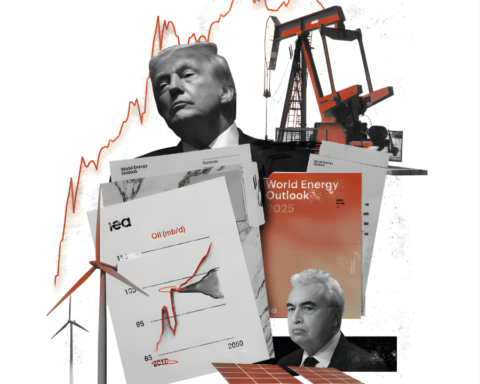In the 20th century, the car changed everything. It redefined the meaning of local, it reshaped our neighbourhoods and our communities, and it eventually transformed every aspect of our lives. These changes took place over 100 years and brought many benefits, but at the expense of mounting social and environmental costs, including the climate impacts of the tailpipe emissions of greenhouse gases. We must now act urgently to reduce those emissions. There is no pathway to a sustainable, net-zero future that does not include the elimination of fossil-powered transportation.
Where we’re at today in relation to our targets:
Canada has set a target of reducing greenhouse gas emissions by 40 to 45% below 2005 levels by 2030. Total emissions in 2019, the most recent year for which an official inventory exists, were at or slightly below 2005 levels. So for practical purposes, the 40 to 45% reduction target applies to today’s level of emissions. But for transportation, emissions are up over 2005 levels, and meeting our target will require a steeper decline than for other sectors.
Total emissions from all modes of transportation in 2019 were 14% above 2005 levels. More than two-thirds of the energy use and emissions in the transportation sector are from the exhaust pipes of cars and trucks, and in 2019 these emissions were up 18% over 2005 levels. It will take a 50% reduction from current levels to meet our target.
The hitch:
Every fossil-powered car or truck purchased today makes it that much more difficult and expensive to achieve a 50% reduction in road transportation emissions by 2030. Cars and trucks last for eight to 12 years, and sometimes much longer. The vehicles that are being sold in Canada today will be on the road in 2030, and more than 95% of them are powered by fossil fuels.
What to watch:
That’s why tracking the annual market share of electric or other zero-emission vehicles is a key indicator of how effectively we are responding to the climate emergency. For personal vehicles, meeting our 2030 target might still be possible but would require that the electric vehicle (EV) share of new sales ramp up from its current level of less than 5% to 50% within five short years, reaching 100% by 2030. For medium and heavy trucks, the transition is not as far along.
There are other strategies that can have an impact between now and 2030, including increased fuel-efficiency standards for combustion vehicles, investment in and encouragement of shared mobility, public transit and active transportation, increased use of “ultra-light” EVs for local trips, and greater use of telepresence technologies that can reduce the number and length of vehicle trips.
Proposed Earth Index indicators:
- % of sales of personal vehicles that are non-emitting: 50% by 2026 and 100% by 2030
- % of sales of medium and heavy trucks that are non-emitting: 50% by 2030
- % of vehicles that are non-emitting by 2030: 50% of personal vehicles and 15% of trucks
The decarbonization of the transport sector will be capital intensive, although prices will decline as the implementation rate increases. The incremental costs of the vehicles and the home and public charging infrastructure over the next critical 10 years will be in the range of $120 billion. Annual emission reductions in 2030 will exceed 73 megatonnes of CO2 equivalent.
The challenge of getting the carbon out of the transport sector, and doing it quickly, epitomizes the “wicked” nature of the climate emergency. The technology is available, but putting it in place in time to avert climate catastrophe will come with the disruption that inevitably accompanies grand transitions. There will be stranded assets and there will be winners and losers, but it is a disruption we can and must embrace if we are to succeed in building a healthier and more sustainable economy.
Ralph Torrie is Corporate Knights’ director of research.







